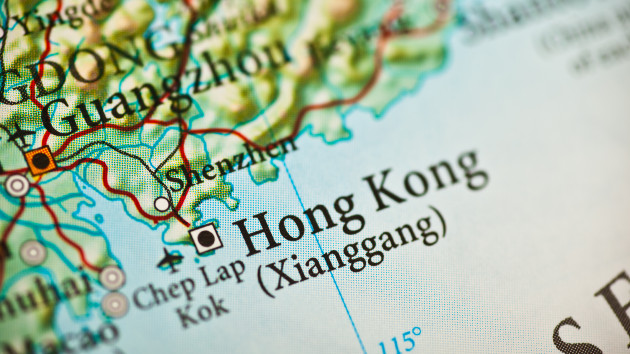
(HONG KONG) — Hong Kong has announced significant changes to its strict COVID-19 border measures, which have been among the most stringent in the world.
A flight ban from nine countries — including the United States and the United Kingdom — will be scrapped from April 1.
“This is no longer necessary,” Hong Kong leader Carrie Lam said at a press conference on Monday, “because the COVID-19 situation in these countries is no worse than in Hong Kong and many travelers coming here do not have symptoms.”
Quarantine time for residents will be reduced from 14 days to seven, as long as residents are vaccinated and test negative throughout the week. For now, tourists are still barred from entering the city.
Lam said that plans to carry out citywide testing are also on hold. A range of other social distancing measures, including dining restrictions, are set to be eased in phases over the next few months, as long as case numbers don’t “rebound.”
The changes come after Hong Kong’s leader admitted the public’s patience was being tested by strict restrictions as the city battles its worst wave yet.
Hong Kong has been chasing a no-tolerance policy towards the virus, in line with the strategy adopted by mainland China. However, cases exploded to the tens of thousands in this most recent wave, which started at the beginning of the year.
The death rate surged to the highest in the world, with hospitals overwhelmed and morgues pushed beyond capacity. Sluggish vaccination rates among Hong Kong’s elderly population are to blame for the high mortality rates of the city’s most vulnerable, officials said.
Last week, Lam admitted that public tolerance towards the severe restrictions was “fading.”
Hannah McLeod, managing director for City Mental Health Alliance Hong Kong, said that uncertainty around the city’s policies has caused distress.
“People have reported feeling a loss of control and self-determination due to the lack of clear information around the timelines of government plans for mass testing and compulsory isolation, including a potential separation of families in government quarantine facilities,” McLeod said.
The alliance carries out workshops so that companies can brainstorm how to support mental health in the workplace.
McLeod said there are added issues with employees working from home, especially in one of the most densely populated cities in the world: “Hong Kong families in small apartments with parents and children potentially all trying to complete work or school tasks, this limited space adds to stress, anxiety and discord and potential mental health issues.”
For some, the COVID environment has become too much. According to immigration data, more than 50,500 residents departed the city in the first half of March. The city recorded a net outflow of 74,000 last month alone.
One resident, named Sally, told ABC News that she felt the measures were becoming “too much,” especially with a young family.
“I have made the decision to move back to the United Kingdom because it was torture not being able to see my family back at home. I also found remote learning a big burden on our lives here,” she said.
Hong Kong’s strategy has also impacted the economy, with business leaders warning that the city’s status as a financial hub will suffer long-term damage unless Hong Kong pivots to living with the virus.
Copyright © 2022, ABC Audio. All rights reserved.
